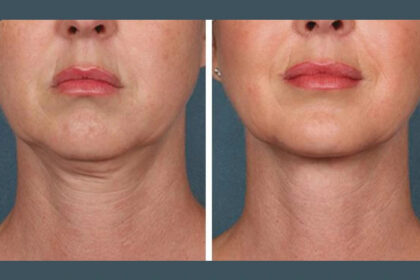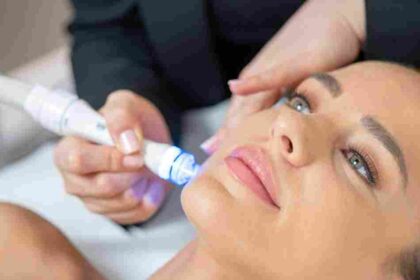When it comes to achieving smooth, glowing, and youthful-looking skin, many people turn to professional chemical peels. One of the most popular options today is the PCA Peel Treatment in Dubai, known for its ability to exfoliate, rejuvenate, and restore the skin’s natural radiance. But as with any skincare procedure, a common question arises — can PCA peels cause redness or burns? Let’s explore what this treatment really does, why temporary redness may occur, and how to ensure your experience is both safe and effective.
What Is a PCA Peel Treatment?
A PCA peel (short for Physician’s Choice of Arizona peel) is a type of chemical peel that uses a blend of exfoliating acids—such as lactic acid, salicylic acid, citric acid, and trichloroacetic acid (TCA)—to gently remove dead skin cells and promote cell renewal. Unlike traditional harsh chemical peels, PCA peels are formulated with soothing ingredients that minimize irritation while delivering noticeable results.
This treatment targets a range of skin concerns including:
-
Fine lines and wrinkles
-
Uneven tone or texture
-
Acne and acne scars
-
Sun damage and pigmentation
-
Dull or tired-looking skin
What makes PCA peels different is their customization. Depending on your skin type and concerns, the concentration and combination of acids can be tailored to suit your individual needs, making it a versatile option for almost every skin type.
![]()
Can a PCA Peel Cause Redness?
The short answer is: yes, mild redness is normal after a PCA peel. However, it’s important to understand why it happens and what it means for your skin.
After applying the peel, the top layer of the skin begins to exfoliate. This process encourages new, fresh skin cells to rise to the surface. As your skin adjusts and regenerates, slight redness or sensitivity can occur — similar to a mild sunburn. This is a natural part of the skin renewal process and typically subsides within a few hours to a couple of days, depending on your skin’s sensitivity and the depth of the peel used.
Think of redness as your skin’s way of showing that the treatment is working. It indicates increased circulation and cellular activity beneath the surface — both key components of achieving a brighter, more even complexion.
What About Burning or Irritation?
A PCA Peel Treatment should never cause severe burning, blistering, or prolonged discomfort. During the application, it’s normal to feel a slight tingling or warm sensation as the active ingredients penetrate the skin. However, if the peel is performed correctly and according to your skin’s tolerance, this sensation should be minimal and temporary.
Burning or excessive irritation can occur only in rare cases, often when:
-
The peel is too strong for your skin type.
-
Pre-treatment skin prep instructions were not followed.
-
Post-peel care was neglected.
-
The skin barrier was already compromised prior to the treatment.
That’s why it’s essential to have a pre-treatment skin assessment to ensure the peel is appropriate for your skin’s current condition.
The Role of Aftercare
Post-peel care is just as important as the treatment itself. Proper aftercare minimizes redness and ensures optimal results. After your PCA Peel Treatment, you should:
-
Avoid direct sun exposure for several days.
-
Apply a broad-spectrum sunscreen daily.
-
Keep your skin moisturized and avoid exfoliating products.
-
Refrain from touching or peeling off flaking skin.
Following these steps helps the skin heal properly and reduces the risk of irritation or hyperpigmentation.
Why Redness Isn’t Always a Bad Sign
While it might seem concerning, mild redness is actually a sign that your skin is responding positively. It’s part of the rejuvenation process where the old, damaged layers of skin shed to make way for new, healthy cells. Within a few days, most people notice a visible glow, smoother texture, and a more even skin tone.
However, if redness is accompanied by swelling, blistering, or severe discomfort, that could indicate a sensitivity or allergic reaction. In such cases, it’s crucial to keep the skin cool and calm, and avoid applying any harsh products until it settles.
How to Prevent Redness or Burns from PCA Peels
While PCA peels are designed to be safe and gentle, there are proactive steps you can take to ensure the best outcome:
-
Disclose your skin history – If you’ve used retinol, exfoliants, or other active ingredients recently, mention it before treatment. These can increase skin sensitivity.
-
Avoid sun exposure – Tanned or sunburned skin is more prone to irritation.
-
Hydrate before and after – Well-hydrated skin heals faster and responds better to peels.
-
Follow all prep and aftercare instructions – These guidelines are designed to protect your skin barrier and enhance results.
By being consistent with these steps, you significantly reduce the chances of experiencing redness or burns.
The Long-Term Benefits of PCA Peels
Once your skin adjusts post-treatment, the benefits of PCA Peel Treatment in Dubai become clear. Over time, your skin appears brighter, firmer, and more youthful. Regular treatments can even help fade pigmentation and acne scars, offering a long-term improvement in skin texture and tone.
Unlike stronger peels that may require extensive downtime, PCA peels strike a balance between effectiveness and comfort. That’s why they have become a popular choice for those seeking professional results without the risk of aggressive side effects.
Final Thoughts: Is a PCA Peel Right for You?
It’s completely natural to have concerns about redness or irritation after a chemical peel. The good news is that with proper care and professional guidance, PCA Peel Treatment Dubai is one of the safest and most effective ways to achieve glowing, renewed skin. Mild redness is temporary and part of the rejuvenation process, while severe reactions are rare and usually preventable with the right preparation.
If your goal is to refresh dull skin, minimize imperfections, and reveal a smoother, more radiant complexion, a PCA peel could be the gentle yet powerful solution you’ve been looking for. By understanding the process and taking the right precautions, you can enjoy all the benefits of this advanced skincare treatment — with confidence and peace of mind.




